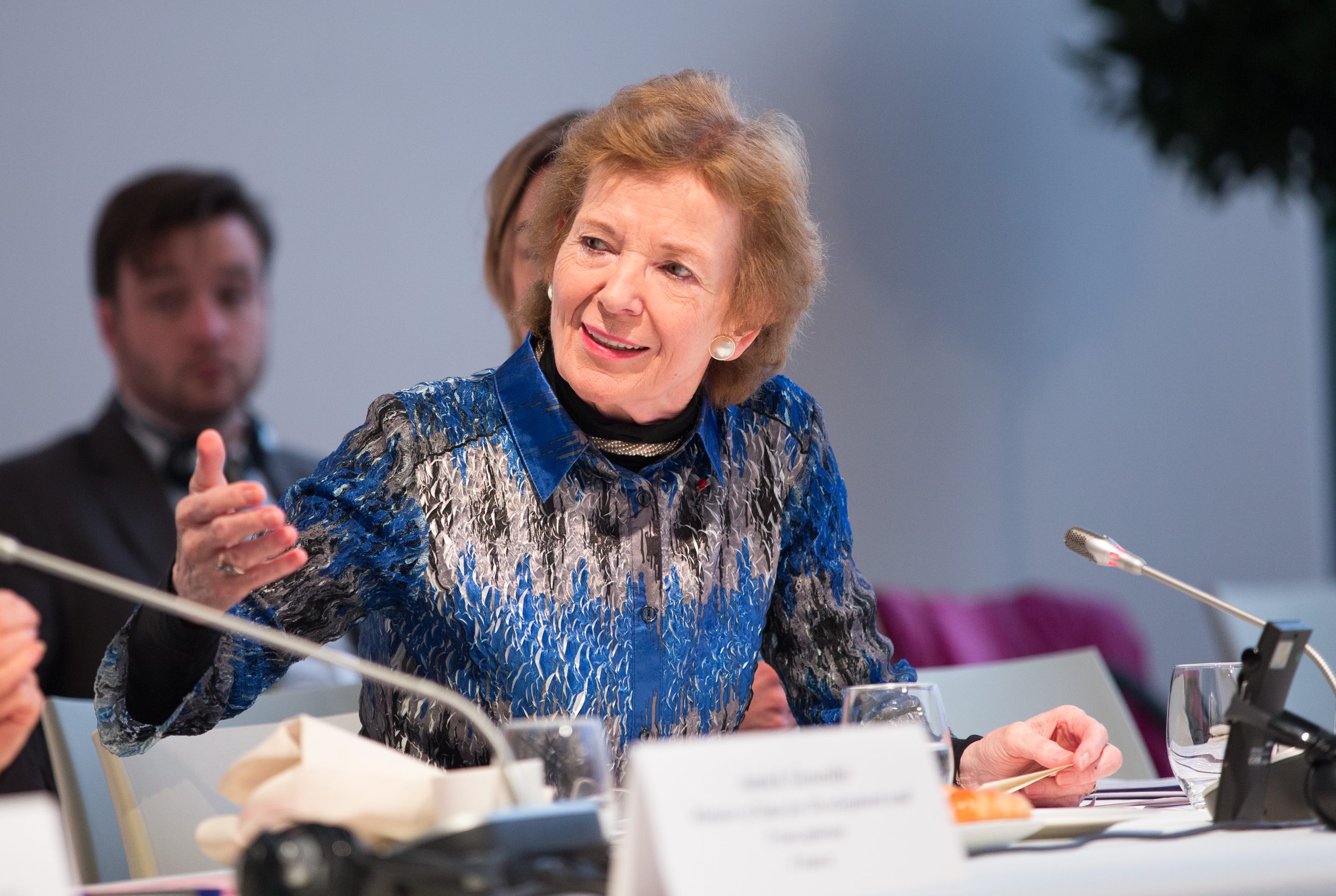The unprecedented call for climate justice has echoed from all corners of the world and was brought inside the walls of the negotiating rooms at COP21 in Paris. We see it reflected in the pages of the Paris Agreement – even if the means to achieve it will have to come in the coming years.
Climate change is already affecting us all and the Paris Agreement adopted tonight provides the opportunity to transform our way of life to one that is fairer and more sustainable. It establishes the need to keep global temperature rise below 2OC and closer to 1.5oC. It also compels countries to act urgently to increase the capacity of communities to cope with climate change and to uphold human dignity in the face of unmanageable climate impacts.
I am pleased that the agreement is more people centred than its parent Convention, building on our growing understanding of climate change as a social, economic and environmental issue. While falling short of adopting a rights based approach to the implementation of the provisions of the agreement, the Paris Agreement recognises the need to respect and promote human rights, the rights of indigenous peoples, gender equality, women’s empowerment and intergenerational equity to achieve a just transition.
As a result, the Agreement and accompanying decision have the potential to set in train the steps needed to protect people living in the most vulnerable situations. They also provide a foundation to deal with any shortcomings which remain, including the provision of support for developing countries. This will require the continued engagement of governments working in partnership with citizens, businesses, local authorities and civil society. The inclusive process that enabled countries to come together in Paris is the key to strengthening the values signalled in the agreement so that they inform the design and implementation of climate actions over time.
In the years leading up to this agreement more and more people, businesses and civil society organisations have engaged with the climate agenda; as an issue of development, justice, rights and human security. The reference to climate justice in the preamble of the agreement is evidence that the calls of people through marches, petitions, online campaigns, music and the arts have been heard. We need to keep building this momentum between now and 2020, to translate the agreement into ambitious actions both at the national and local level.
Despite their differences, 196 countries came together to prove that a multilateral process built on trust and dialogue, and that respects the capacity of smaller delegations to engage, can yield strong results. By applying this Principle of Climate Justice, ensuring that decisions on climate change are participatory, transparent and accountable; the voices of people in vulnerable situations were heard and will be acted upon.
We have set the direction of travel in 2015 with this Paris Agreement and the Sustainable Development Goals. Together they send a strong message of hope that we can achieve a safer world with opportunity for all.
ENDS
Mary Robinson, seventh President of Ireland, President of the Mary Robinson Foundation – Climate Justice, and the United Nations Secretary General’s Special Envoy on Climate Change


